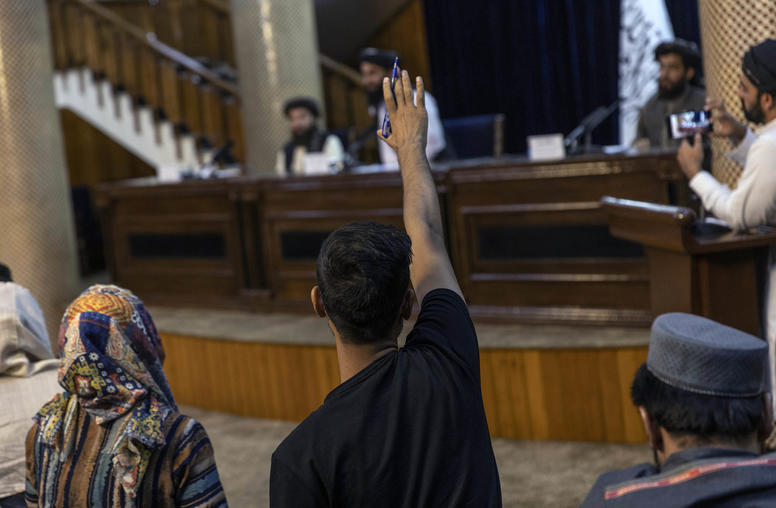Barry Salaam
Contact
Please submit all media inquiries to interviews@usip.org or call 202.429.3869.
For all other inquiries, please call 202.457.1700
Barry Salaam is a senior program officer for Afghanistan at USIP. His distinguished career spans over 20 years in communications, media production, project management, civic activism, anti-corruption and public diplomacy.
Salaam began as a news attaché at the International Committee of the Red Cross in Kabul from 1997 to 2001, followed by a stint as a communications officer at the Danish Committee for Aid to Afghan Refugees from 2001 to 2002.
He possesses substantial experience in media. Notably, he established Good Morning Afghanistan Radio in February 2002, marking the country's first public service broadcasting initiative. He also founded and ran Channel-7 Television and NAW Media Production, through which he implemented over 30 strategic communications projects and grants for the U.S. and Afghan governments.
His extensive career includes public service in senior roles in Afghanistan. From 2017 to 2019, Salaam served as a commissioner and chairman of the Independent Joint Anticorruption Monitoring and Evaluation Committee. In 2020, he was appointed as a senior advisor and led the General Directorate of Communications and Public Diplomacy at Afghanistan's Foreign Ministry.
As a well-known media and civil society activist, Salaam has participated in over 50 international conferences promoting free press, human rights and democratic development in Afghanistan. He was elected by his peers to be the civil society speaker both at the 2014 London Conference on Afghanistan and at the Bonn Conference in 2011. He has organized and led massive human rights campaigns and contributed to founding and strengthening numerous civil society organizations and networks.
Salaam received a bachelor’s in Persian language and literature from Kabul University and a master’s in international relations from the Fletcher School at Tufts University. He is a certified project management professional and has been awarded multiple prestigious communications and leadership fellowships in the United States and Europe.
